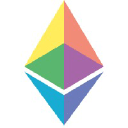Best Blockchain Platforms in February 2026

Ethereum
- Smart contract functionality
- Decentralized applications (dApps)
- Wide developer community
- Proof of Stake (Ethereum 2.0)
- ERC20 token standard
- Layer 2 scaling solutions

Binance Smart Chain (BSC)
- Compatibility with Ethereum
- Low transaction fees
- High transaction throughput
- BEP20 token standard
- Wide array of DeFi applications
- Staking support

Polkadot
- Interoperability between blockchains
- Shared security model
- Scalable and customizable parachains
- Nominated Proof of Stake (NPoS)
- Cross-chain message passing
- Governance model for upgrades

Solana
- High throughput and low latency
- Proof of History (PoH) consensus
- Low transaction costs
- Supports smart contracts and dApps
- Scalability
- Emphasis on speed and efficiency

Cardano
- Proof of Stake (Ouroboros consensus)
- Focus on sustainability and scalability
- Peer-reviewed research foundation
- Multi-asset ledger
- Smart contract support (Plutus)
- Interoperability and governance

Tezos
- Self-amending blockchain
- On-chain governance
- Formal verification for smart contracts
- Proof of Stake (Liquid Proof of Stake)
- Scalable and low energy usage
- Strong emphasis on security
Blockchain technology has transformed the way we think about digital transactions and data integrity. As businesses across various industries seek to leverage this innovative technology, the choice of a blockchain platform becomes pivotal. This guide provides a comprehensive understanding of blockchain platforms and offers insights on how to choose the best one for your business needs.
Understanding Blockchain Platforms
Blockchain platforms are decentralized digital ledgers that facilitate secure, transparent, and tamper-proof transactions. They are the backbone of cryptocurrencies but also have applications in various sectors such as supply chain management, finance, healthcare, and more. These platforms enable the implementation of smart contracts, automate complex processes, and enhance trust between parties.
Key Features of Blockchain Platforms
When exploring the best blockchain platforms, several key features should be considered:
1. Security
Security is paramount in the blockchain ecosystem. A robust platform should possess advanced security features such as encryption, consensus algorithms like Proof of Work (PoW) or Proof of Stake (PoS), and protection against common vulnerabilities.
2. Scalability
As blockchain technology evolves, the ability of a platform to handle an increasing amount of data and transactions becomes critical. Scalability ensures that a platform can grow with user demands without sacrificing performance.
3. Decentralization
A true blockchain platform should be decentralized, reducing the risk of single points of failure and enhancing trust among participants. This decentralization means data is distributed across numerous nodes, ensuring network redundancy and reliability.
4. Smart Contract Functionality
Smart contracts are self-executing contracts with the terms of the agreement directly written into code. Platforms that support this functionality enable automation and efficiency, and they are instrumental in various business applications.
5. Interoperability
As multiple blockchain platforms exist, the ability of a platform to interact with others is vital. Interoperability allows for seamless collaboration between different blockchain networks, fostering innovation and broader technology adoption.
Types of Blockchain Platforms
Blockchain platforms can be categorized into different types based on their structure and use case:
1. Public Blockchains
Public blockchains are open to anyone and characterized by their transparency and openness. Anyone can participate in the network, validate transactions, and maintain a copy of the ledger.
2. Private Blockchains
Private blockchains are restricted, where only pre-approved participants can join the network. These platforms are often used by businesses that require privacy and control over their network.
3. Consortium Blockchains
Consortium blockchains are semi-decentralized, where a group of organizations governs the network. This type combines the best of both public and private blockchains and is suited for collaborative business processes.
How to Choose the Right Blockchain Platform
Choosing the best blockchain platform involves evaluating several factors based on your specific needs:
1. Define Your Objectives
Clearly outline the goals and objectives you wish to achieve with blockchain technology. Whether it's enhancing supply chain transparency, ensuring data immutability, or developing decentralized applications, knowing your objectives will guide your platform choice.
2. Evaluate Technical Attributes
Assess the technical capabilities of each platform. Consider factors such as transaction speed, consensus mechanisms, and the available development tools and community support.
3. Consider Industry Needs
Different industries have unique blockchain requirements. Identify platforms that have been proven effective in your industry, leveraging existing case studies and success stories.
4. Assess Network Community and Support
A strong developer community and support network are essential for ongoing platform improvement and troubleshooting. A thriving community indicates a resilient and evolving technology.
5. Budget and Cost Implications
Consider the cost of implementing and maintaining the blockchain platform. Evaluate any associated fees, such as transaction costs or licensing fees, that could impact your budget.
Conclusion
Choosing the best blockchain platform is a strategic decision that requires careful consideration of various factors. By understanding your specific needs, evaluating the technical features, and considering the industry landscape, you can select a platform that aligns with your business goals and maximizes the potential of blockchain technology. As the blockchain ecosystem continues to evolve, staying informed about the latest developments will also aid in making the best choice for your organization.
